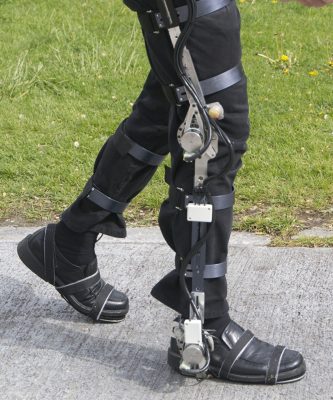The HIPER project intends to represent a breakthrough in the research of neurorobotic (NR) and motor neuroprosthetic (MNP) devices in close cooperation with the human body, both for rehabilitation and functional compensation of motor disorders in activities of daily living. The project will focus its activities on new wearable NR-MNP systems that will combine biological and artificial structures in order to overcome the major limitations of current rehabilitation solutions for the particular case of Cerebrovascular Accident (CVA), Cerebral Palsy (CP) and Spinal Cord Injury (SCI).
The main objectives of the project are to restore motor function in SCI patients through functional compensation and to promote motor control re-learning in patients suffering from CVA and CP by means of an integrated use of neurorobotics and neuroprosthetics.
The project will both functionally and clinically validate the concept of developing hybrid NR-MNP systems for rehabilitation and functional compensation of motor disorders, under the assist-as-needed paradigm. In the HYPER view, we assume that the improvement of physical rehabilitation therapies depends on achieving a more interrelated and transparent communication between the human system and the machines, and therefore, different levels of human neural activity are explored.
The RoboticsLab is responsible for the analysis of classical and emerging actuator technologies as actuator technologies for the NR. Several actuator technologies will be evaluated, such as Ultrasonic (US) motors, Shape Memory Alloys (SMA) and Magneto-Rheological (MR) actuators.

